Future Rewind # 2- Christy Dena
For the second interview of our series Future Rewind, we caught up with Christy Dena – a writer, designer and director of cross-disciplinary and interactive projects in both the digital realm and the everyday. Her video game installation Magister Ludi was featured as part of Experimenta Recharge, 2014 -2016.
The power of play is undeniable. It boosts creativity, builds resilience, deepens problem solving skills and for children, is vital to learning about the world and themselves.
So it’s perhaps strange that games are often overlooked as a tool for facilitating important change in our lives and in the world around us.
Unlocking this transformation potential is at the heart of the work of story maker, game designer and educator, Christy Dena. Her work looks to narrative design processes and techniques to go beyond the common structures to unlock deeper meaning and potential.
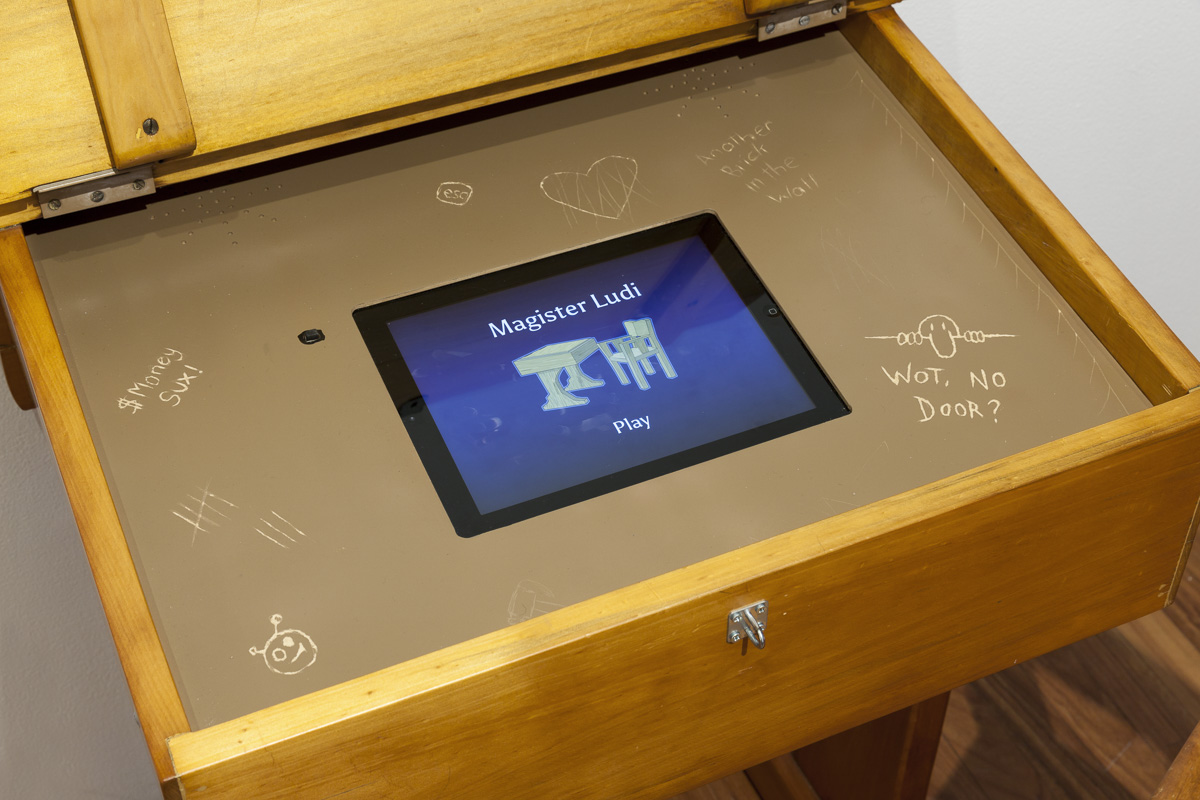
For the Experimenta Recharge national tour, her installation presented audiences with a vintage wooden school desk, the lid opening to reveal a screen inviting them to play Magister Ludi.
Christy describes Magister Ludi as a “conceptual escape-the-room game where the only way to truly escape is to think differently than the room you’re in.”
“So, the puzzles are less figuring out where the keys to unlock are, and more figuring out the oppressive nature of the room, and how you can emancipate yourself by thinking differently. When you do, it’s easier to leave than you first imagined.”
– Christy Dena
THE PAST> Reflecting on Magister Ludi
At a QUT digital writing residency in 2014 Christy met Experimenta’s then artistic director Jonathan Parsons, who invited her to create a work for Experimenta’s next touring biennial of media art, Recharge.
The curatorial theme of the tour focused on artists whose work was inspired by and entangled with the past – recharging knowledge and meaning systems, and reinvigorating or radically transforming them.
While this appeal to ‘recharge the past’ was intriguing, Christy’s initial concern was much more practical – how to best approach a technical installation that would withstand the challenges of a three year tour across regional Australia.
“I thought ‘okay, I’ll have a low-tech installation piece, but I’ll have an iPad within it and I’ll make an app that can go within the installation’,” she explains.
For the low-tech element, she searched vintage stores for something interesting, eventually coming across the old school desk. Immediately something clicked.
“There was that whole idea of being schooled and learning – and so I used that as a jumping off point.”
At the same time, the ‘escape room’ phenomenon that was dominating the popular landscape led to this idea of being locked in. Through the lens of the Recharge theme, this guided her back to a previous experience leaving an abusive relationship. It struck her that you don’t truly escape that experience until you have dealt with it internally. She recognised the “internal work that you need to do in order to not be there anymore – not get into that space anymore.”
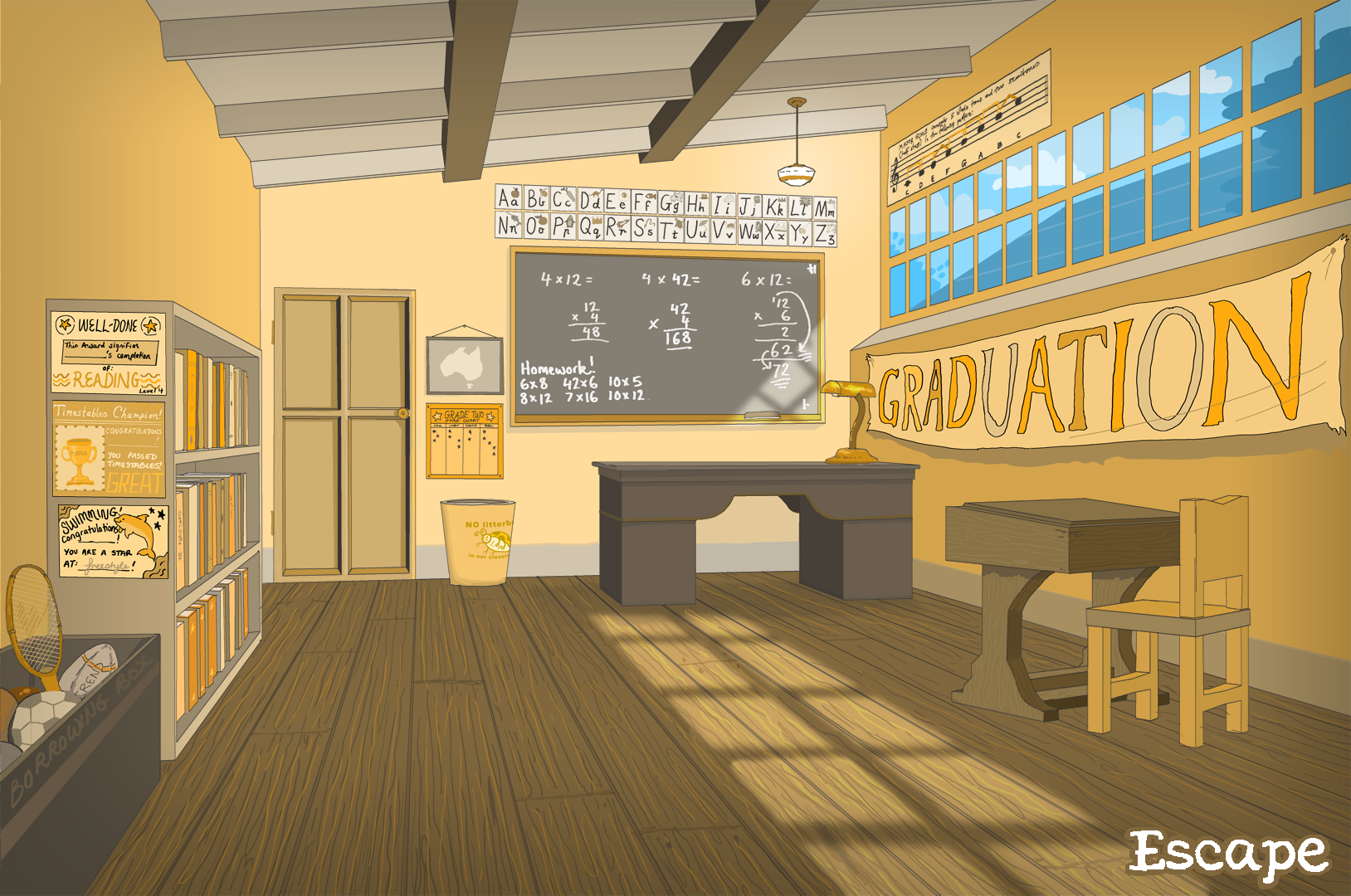
This idea had parallels to Herman Hesse’s Nobel-prize-winning novel The Glass Bead Game. Set in a world where the game is a way for people to sort through their understanding of themselves and their world, and once skilled in the game become a Magister Ludi – meaning master of the game.
With this, all three elements fell into place. Working with artist Marigold Bartlett , sound artist Trevor Dikes, and programmer Cameron Owen, she created a game using the escape room dynamics but in a very different way. While the game was accessed via the iPad for exhibition installation, the game itself lives on and can still be played on the website or downloaded from the app store.
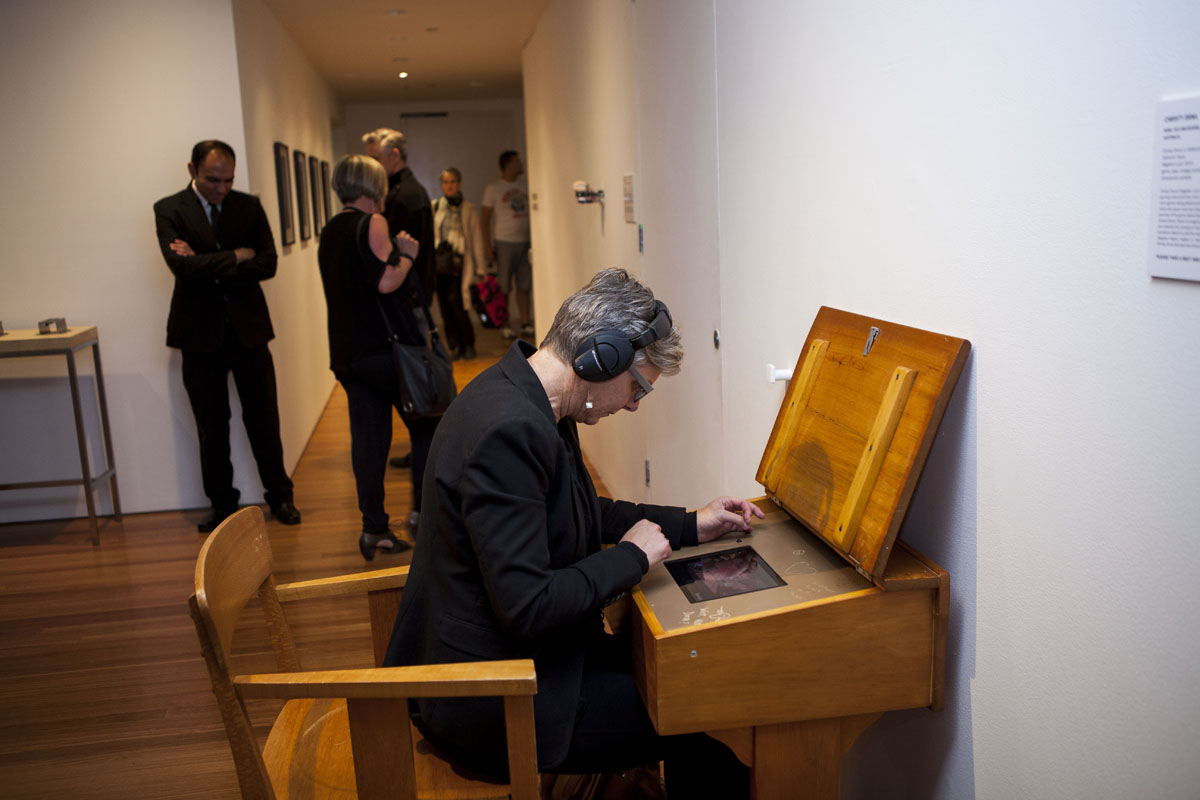
Throughout the commission and tour process Experimenta provided additional support through media and geographic reach, as well as a broad network of artists.
“Things like that give you an uplift so you can then catch the next breeze – and that I think that’s really important.”
When asked how she thinks Magister Ludi holds up today, she says “I think it totally still stands up which is a delight. I did go back and have a play just to check, and I found that past Christy gave me some advice that I needed to hear right now. Which was lovely!”
THE PRESENT > Changing the narrative through design
The concept of change and thinking differently explored in Magister Lugi have continued to weave their way through Christy’s creative practice. Her recent work investigates and tests concerns around constant use of common narrative structures, and the concept of an ideal form.
“Every single aspect [of game design] including the interaction design, the narrative and all that sort of stuff – they’re all parts of the meaning making process. I’ve just found that so often in a lot of media, that some really interesting topics or ideas are explored but using exactly the same sort of structures as before. This can work, but often they’re in conflict – they’re saying different things”
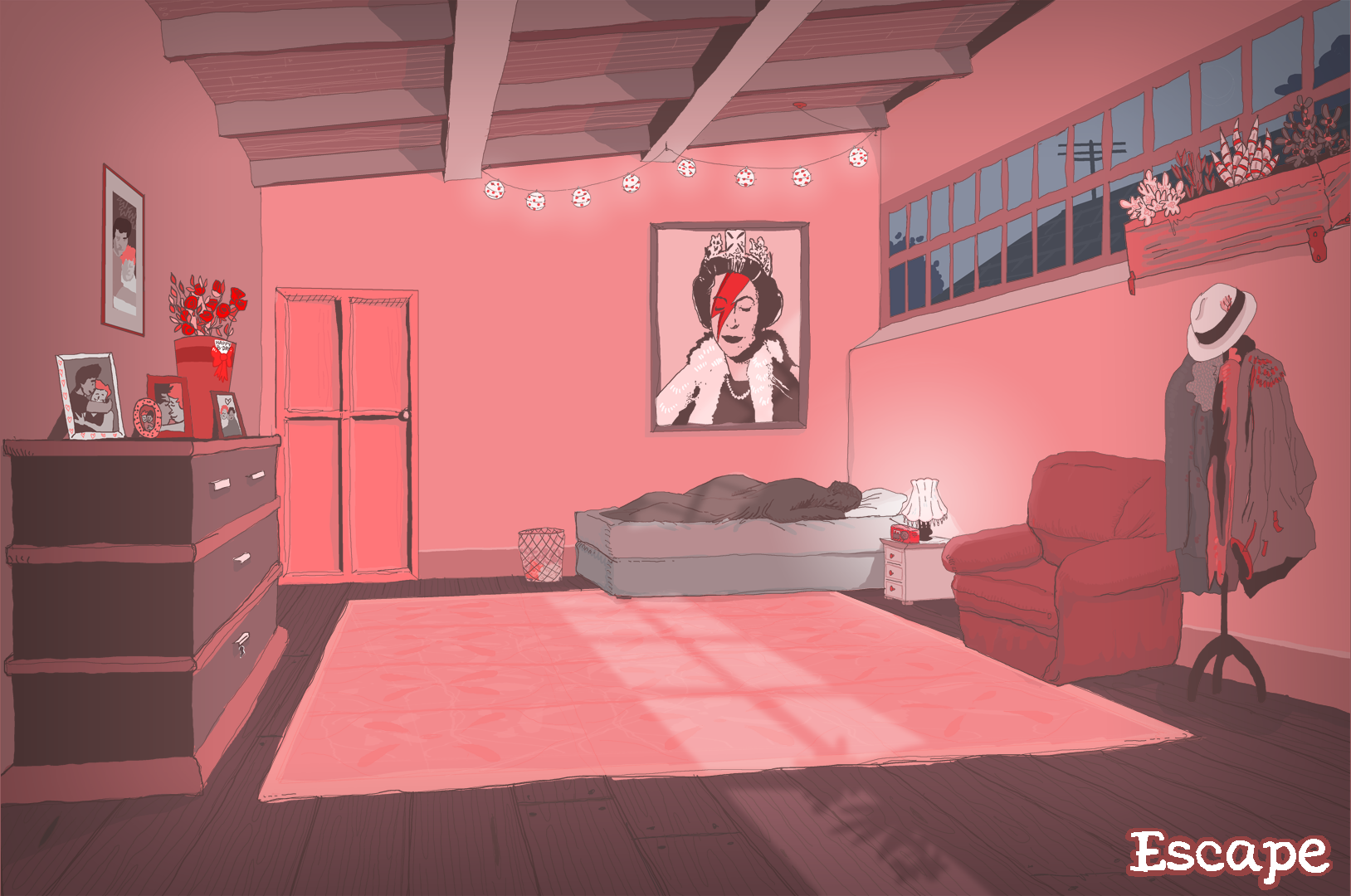
She is currently working on a nonfiction book about narrative design, interrogating how we design change and our relationship with change in the world. “It’s looking at the dramatic arc as it is commonly known, and used in a lot of stories – and I connect that with the way a lot of people commonly associate with change in the everyday. It’s no coincidence that change is designed that way. It’s a reflection.”
“I’m just trying to resurface all of the different ways that people actually change, because it’s not the only story.”
Another project in early development is a cooperative desktop game, Bugging Humans. In this two-player game a blind spider and blowfly come together to start a revolution in their backyard. “One player, the fly, can see and is actually looking at the screen and the other player is the blind spider – they don’t look at the screen at all but they are connected to it. They both have to navigate themselves and work together to get this revolution happening.”
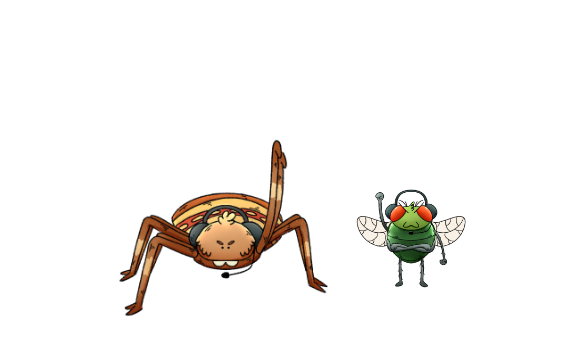
The game will provide a mechanism to completely shift a player’s experience. “It’s basically about how we have very different experiences in the world that we can still come together in solidarity, to make revolution, and how we actually do that.”
As is her collaborative nature, Christy has brought together an incredible team of creatives, including blind filmmakers to contribute their own experiences while evolving the story as a whole. Having been granted funding from VicScreen’s Originate Fund, the team are working through early development and experimentation.
We’ll be following the work as it progresses, so stay tuned for more updates in the future!
FUTURE > Advice to your future past self
As part of the Future Rewind interview series we are also asking artists to imagine themselves in the future looking back. To wrap up the interview we ask our artists, “Imagine it is the year 2030 – what advice would you give to your younger self?”
“It’s a difficult one because I’m always giving myself pep talks in the present anyway!” she laughs.
Coming at this question in a more playful way, she decides to opt for a thought-starter. She picks a tarot card from “Next World Tarot” by Cristy C. Road. A book which fittingly “envisions a world where justice relies on respect and revolutionary love”.
Opening to the Ten of Pentacles, she reads the explanation that “asks you to share your gifts and redistribute power in times of scarcity.” She reflects on her current position, working in the background and developing projects that will be released further down the track.
“I think when things are tight or you’re not sure, the message is to share. When you’ve done the work – I don’t mean just these [creative] works but even everyday with others – let it go.”
She considers this some more and summarises with a playful metaphor.
“Just let the dandelion tufts go with the wind.”
Find out more about Christy’s work on her website and follow her on LinkedIn for regular updates.
Words by Santana Sandow
Have you played Magister Ludi?
Play it now on the website or download it from the app store.